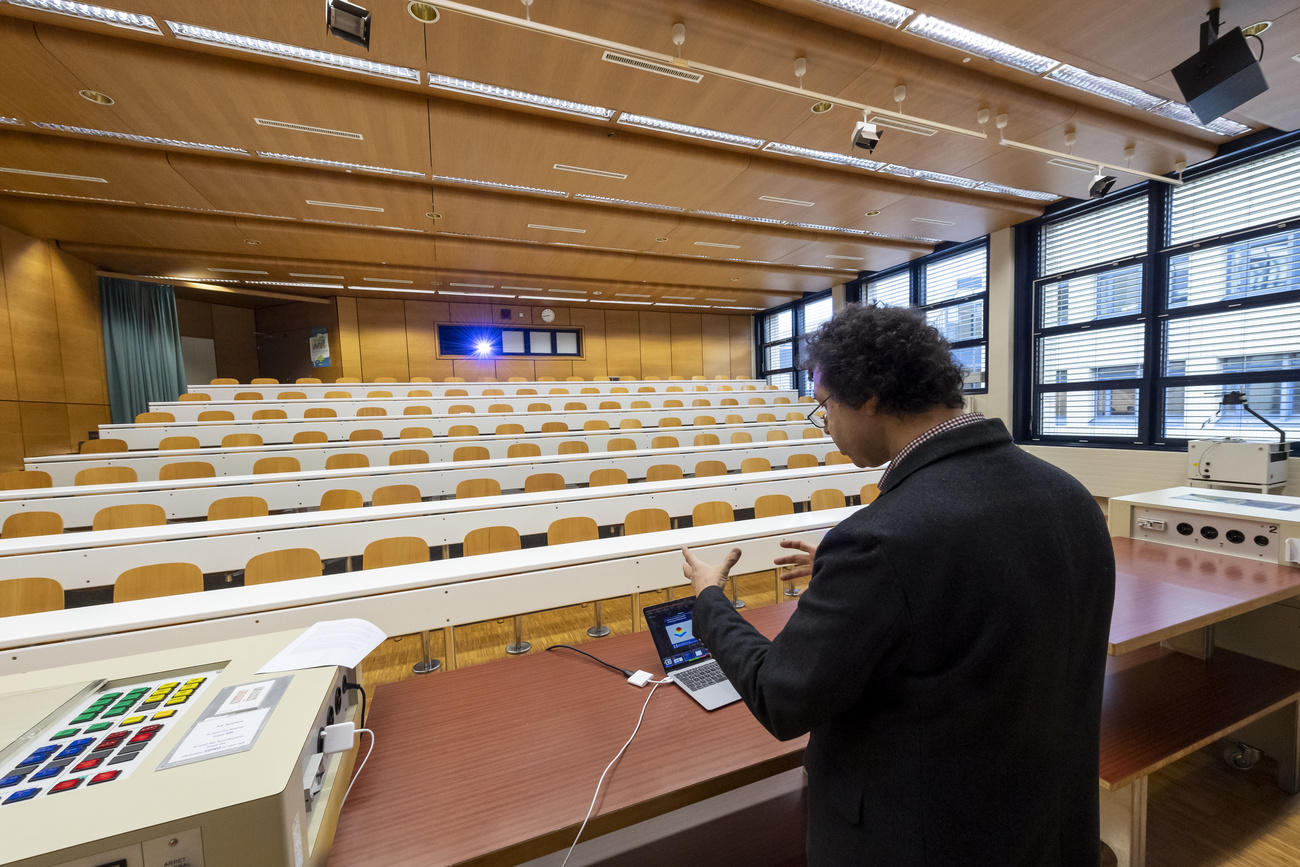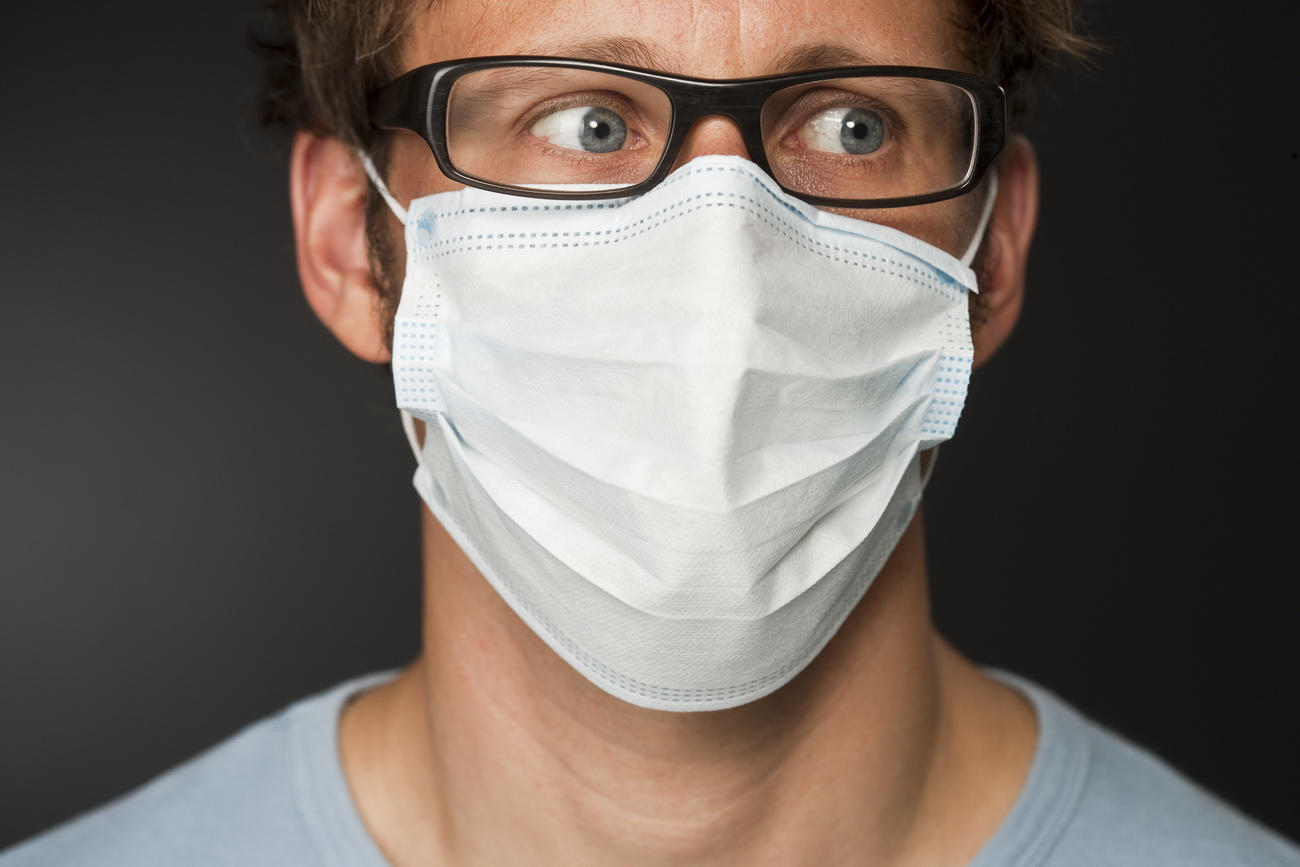
What can Switzerland do to slow the spread of Covid-19?

After the country’s hardest-hit canton took the unusual step of imposing emergency measures as part of a “state of necessity”, the Swiss public has been divided about how far authorities can, and should, go to limit the spread of the new coronavirus.
Here’s a look at the options available to the cantons and the federal government.
What is the legal basis for emergency measures?
As so often in Switzerland, the answer is: it’s complicated as cantonal authorities have much autonomy in deciding the steps they should take.
But the severity of the outbreak has pushed the cantons to coordinate their efforts more closely and follow federal recommendations.

More
Swiss cantons expected to follow Ticino’s lead in emergency measures
A major benefit of cantonal legislation is that it allows them to take targeted measures locally, but in the case of a pandemic like the one we are experiencing now, these piecemeal measures can risk causing confusion and diverging standards.
In 2012, the federal parliament in Bern passed the Epidemics Act to give the federal government more leeway and guarantee that the cantons act in unison in case of such a situation. The new coronavirus is the first time these provisions have been put to the test.
Under the law, the Federal Council may proclaim two situations: a “special situation” (Art. 6) and an “extraordinary situation”.
The special situation status was declared two weeks ago. It is triggered by a risk of serious consequences for the economy and public health.
It can decree some measures that are normally a prerogative of the cantons, but these measures have to be taken in consultation with the cantons. The federal government instituted a nationwide ban on larger gatherings people or more under these parameters, and taken some other measures.
It can reduce the number of people allowed to attend gatherings, it can close schools and universities and other public and private institutions.
In an “extraordinary situation”, the government could take additional measures for parts or the entirety of the national territory. The prior consultations with cantons would no longer be required and cantons would simply execute the federal government’s decisions. It could also restrict movements in parts of the country.
So what are the various levels of government doing?
When the federal government declared the outbreak a “special situation”, it banned large gatherings. The cantons followed suit with stricter rules.
On Wednesday, Ticino went the furthest by declaring a “state of necessity” that was meant to curb social life significantly and it even closed some smaller border posts to Italy.
On Friday, Switzerland has closed schools throughout the country and imposed a ban on public gatherings of more than 100 people. Bars and restaurants are limited to 50 guests while the government pledged CHF10 billion ($10.6 billion) in emergency aid to support the economy.
+ Switzerland imposes sweeping measures to contain coronavirus
The federal authorities have also issued varying sets of recommendations to the public. The first set of recommendations issued by the public health office relates to hygiene, such as washing hands thoroughly. As the outbreak spread, the authorities also recommended social distancing and self-isolation for at-risk people, people with virus symptoms or anyone who has been in contact with infected people.
Could the government declare a state of emergency?
Art. 185 of the federal constitutionExternal link gives the Federal Council the ability to safeguard national security and deal with “imminent disruptions of public order” by taking measures and ordinances.
It may even mobilise up to 4,000 troops for up to three weeks. Parliament would need to approve longer or broader measures. This happened during the Second World War.
But the invocation of Art. 185 seems unlikely as officials reiterate that the Epidemics Act provides for all the necessary procedures to deal with the pandemic.

More
Coronavirus: the situation in Switzerland

In compliance with the JTI standards
More: SWI swissinfo.ch certified by the Journalism Trust Initiative


























You can find an overview of ongoing debates with our journalists here . Please join us!
If you want to start a conversation about a topic raised in this article or want to report factual errors, email us at english@swissinfo.ch.